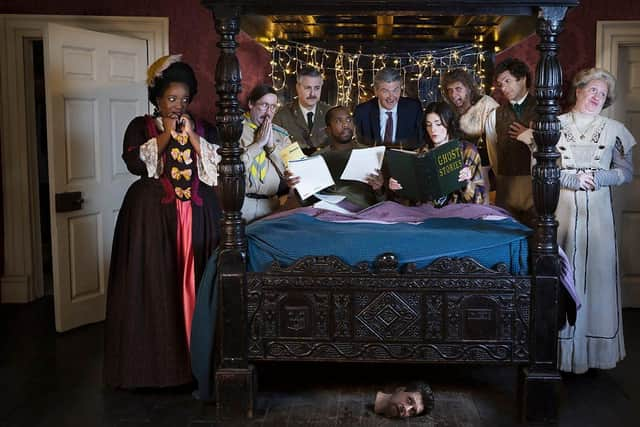Kirsty McLuckie on haunted houses spooking buyers and material concerns
It is Halloween on Tuesday and, while there might not be a direct correlation between property prices and the witching hour, it is certainly the season when property journalists muse on whether owning a haunted house affects its saleability.
There are plenty of examples of properties around the world being sold with occupants that reputedly weren’t of this world.
Advertisement
Hide AdAdvertisement
Hide AdAnd there have been cases in the litigious US where a seller has been ruled liable for failing to mention that the property being sold was haunted.


Here in the UK, it seems far-fetched that you could fall foul of the Property Misdirections Act for omitting to mention spooky sightings in a home that you are selling.
But actually, as Stateside property expert Ryan Fitzgerald has pointed out about the situation on the other side of the Pond: “While the Consumer Protection from Unfair Trading regulations that are applied to property sales in the UK mean that sellers are obliged to disclose information to potential buyers, there’s nothing in there about haunted houses.
“It does, however, say that sellers have a duty to avoid making false or misleading statements.
“So, in theory, this means that if a seller is asked outright if the house is haunted and they lie about it, they will have to prove their case in court.”
Fitzgerald advises buyers with a tendency towards the heebie-jeebies to certainly ask the question if unwanted spirits are something that they are concerned about.
My thoughts are that it may prove very tricky indeed for a spooked buyer to prove, legally, the existence of a resident ghoul. And besides, we tend to be a lot more open, as a nation, to a house with an interesting history.
Certainly interviewing sellers of historic homes and castles in Scotland over the years has meant often listening to tales of grey ladies wandering the corridors, or foreboding skirls of ghostly pipers heard on the battlements.
Advertisement
Hide AdAdvertisement
Hide AdOften these stories are presented in the sales brochure, as an added selling feature, at no extra charge.
As for more everyday properties, asking about ghostly goings-on might not be such a stupid question, even if you aren’t superstitious in any way.
Such inquiries could prove very informative. After all, knocking sounds with no apparent reason point to a problem with the plumbing, while flickering lights should prompt a thorough inspection of the electrics.
More alarmingly, in older houses green goo oozing from plug sockets might lead you to jump to ectoplasmic conclusions, but Richard Harvey, of Electrical Safety First, says it is not an uncommon problem: “It is far more likely to be linked to deteriorating wiring than a mutant invasion.
“When green goo appears, it can adversely affect protective components within your socket and leave you exposed to risk of electric shock. It is mostly seen in wiring predating 1960 and is a chemical reaction between plastic and copper.”
Meanwhile, scratching or scuttling noises around the house are more likely to indicate a vermin infestation than a visitation by an unquiet soul.
And a property that emits groans could be seriously unstable – which should make any prospective buyer run screaming faster than any ghostly sighting.
- Kirsty McLuckie is property editor at The Scotsman
Listen to the latest property podcast in partnership with DJ Alexander here.